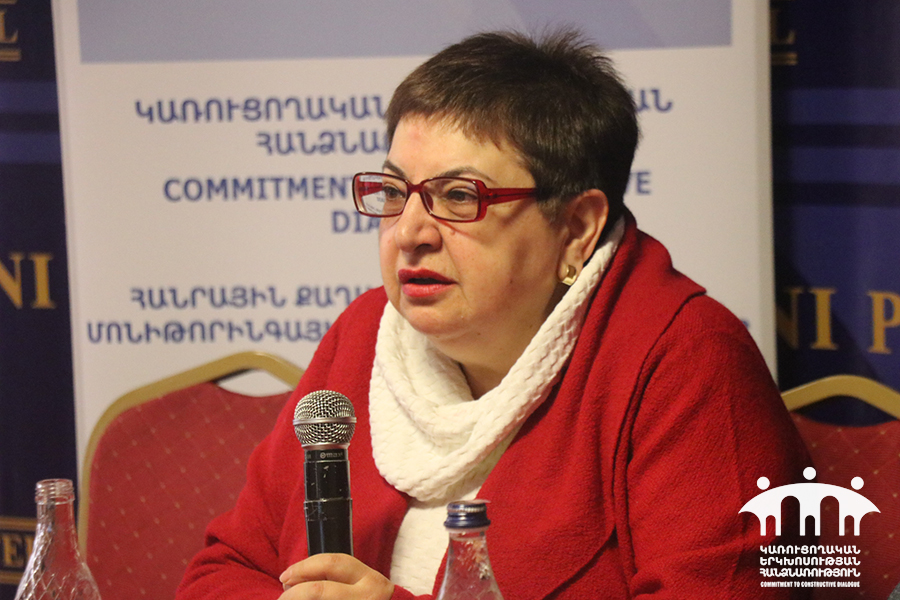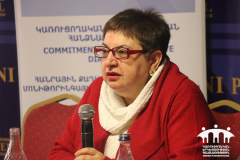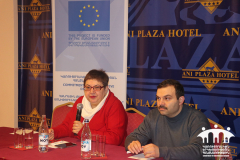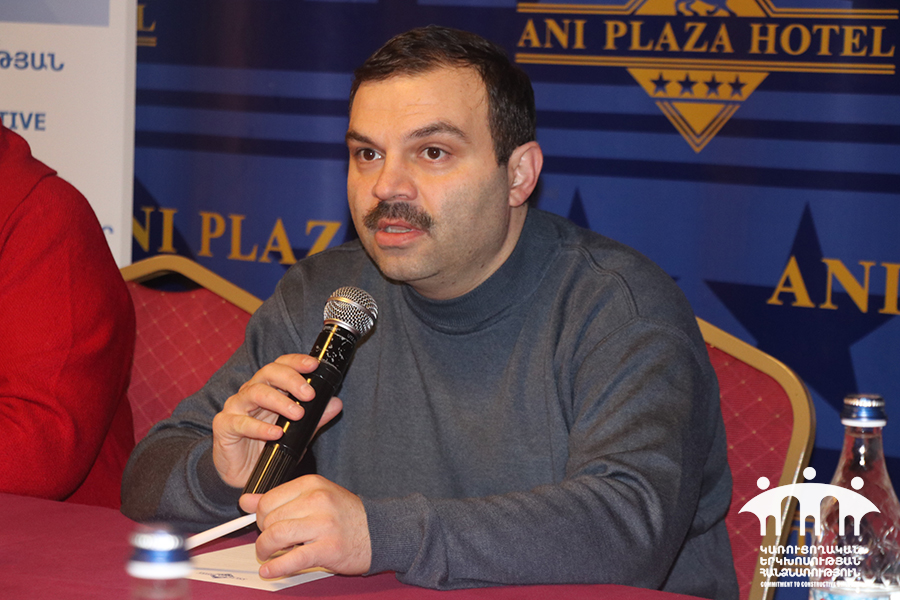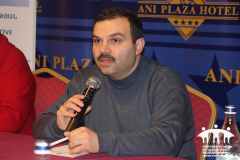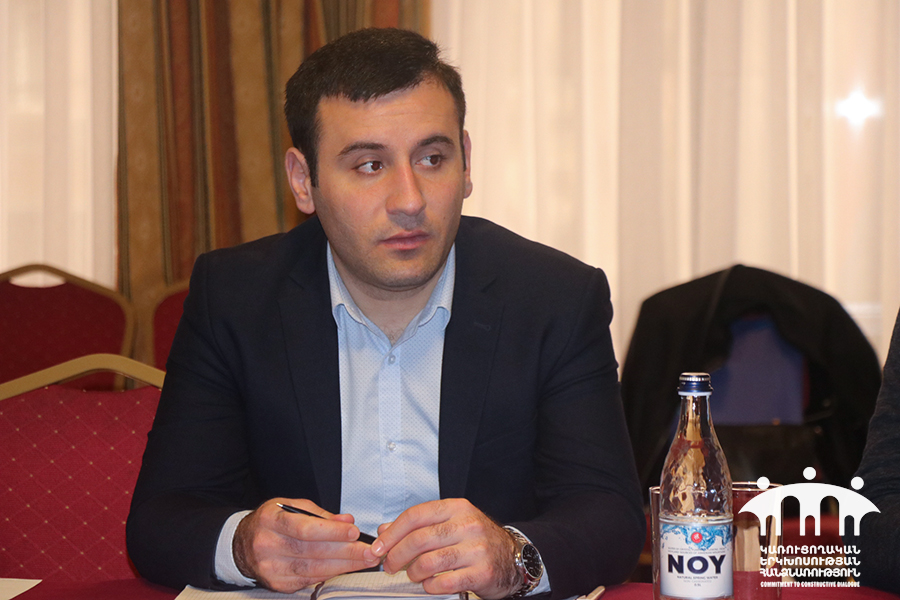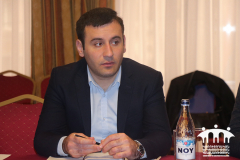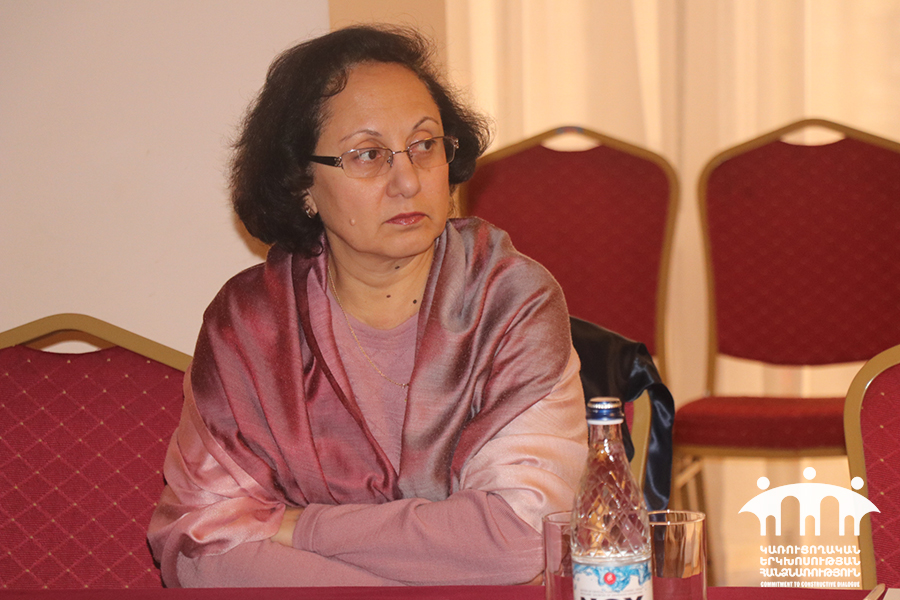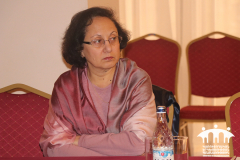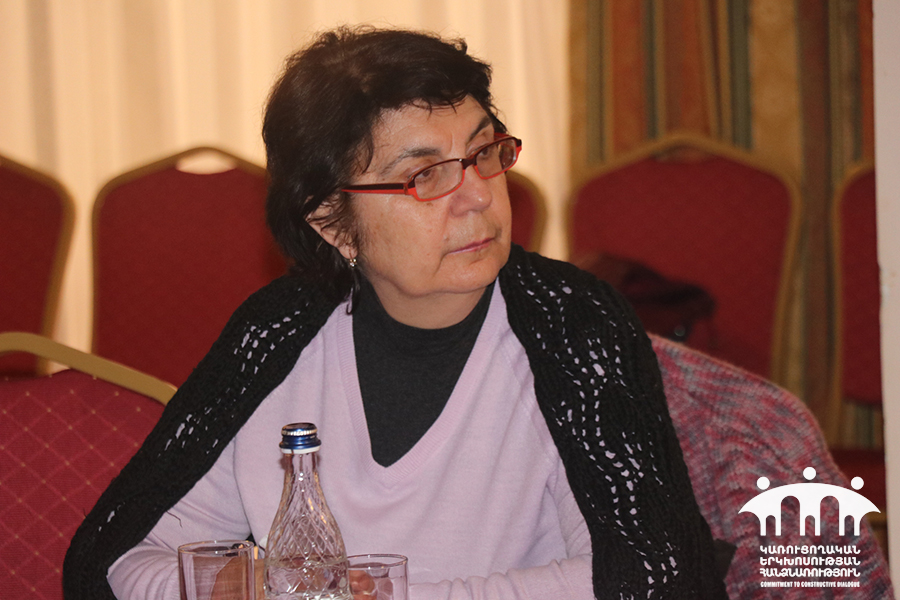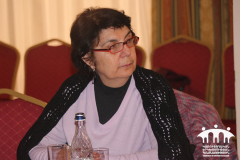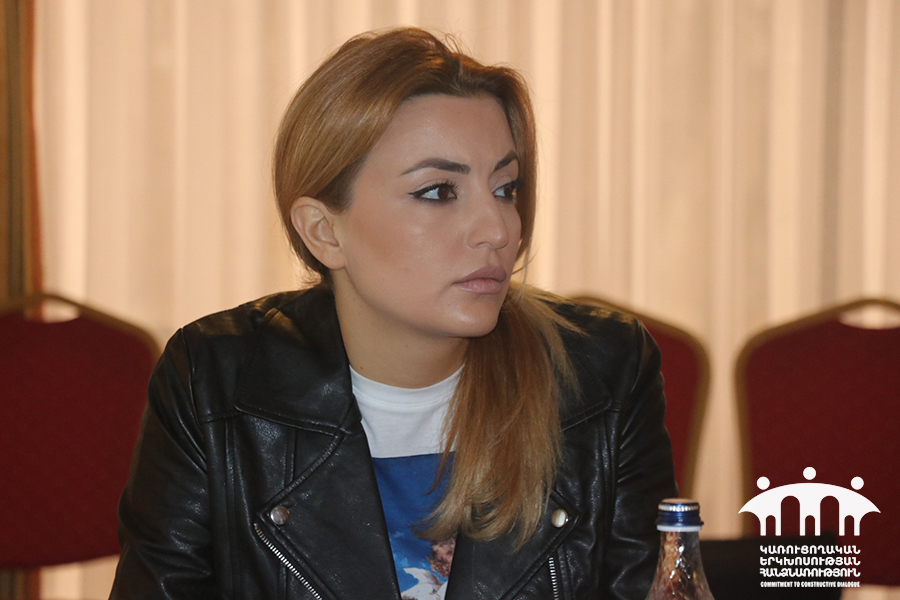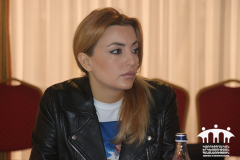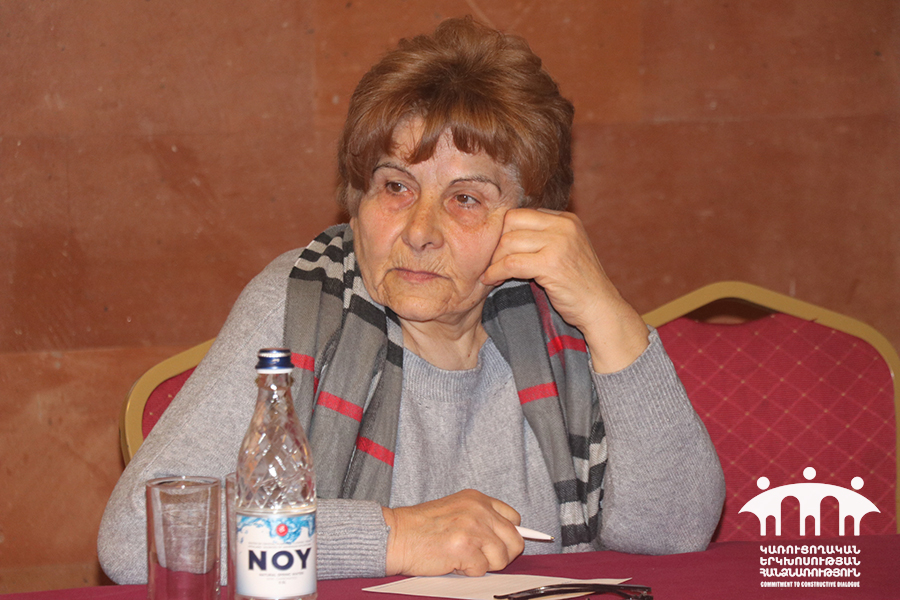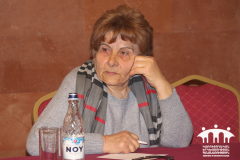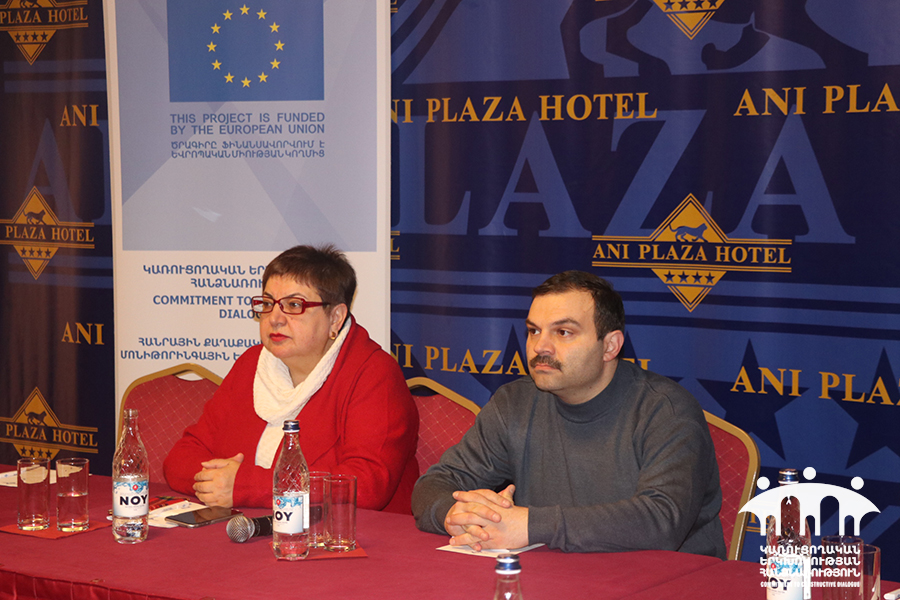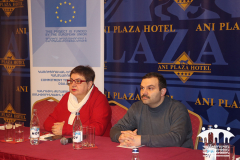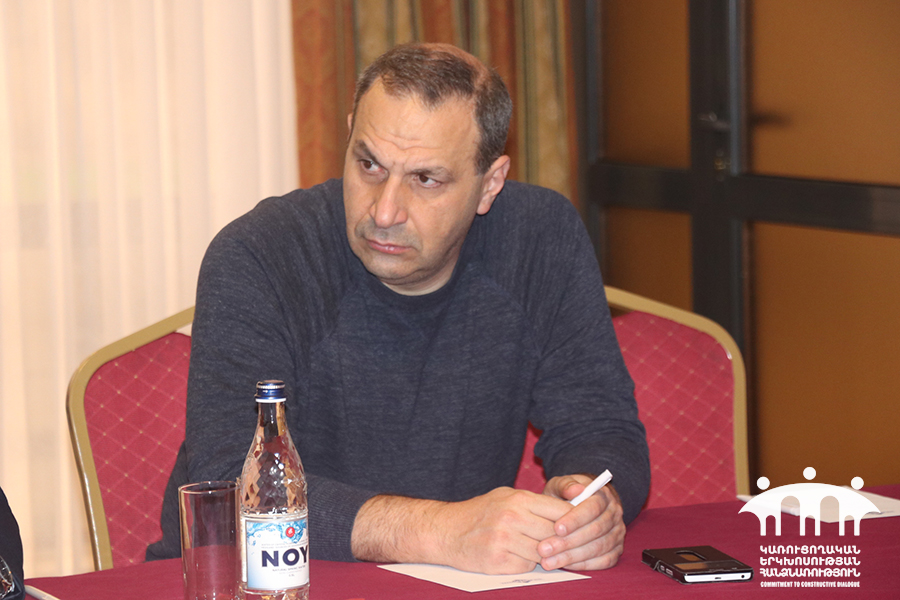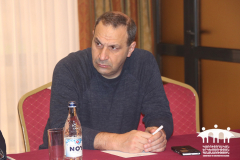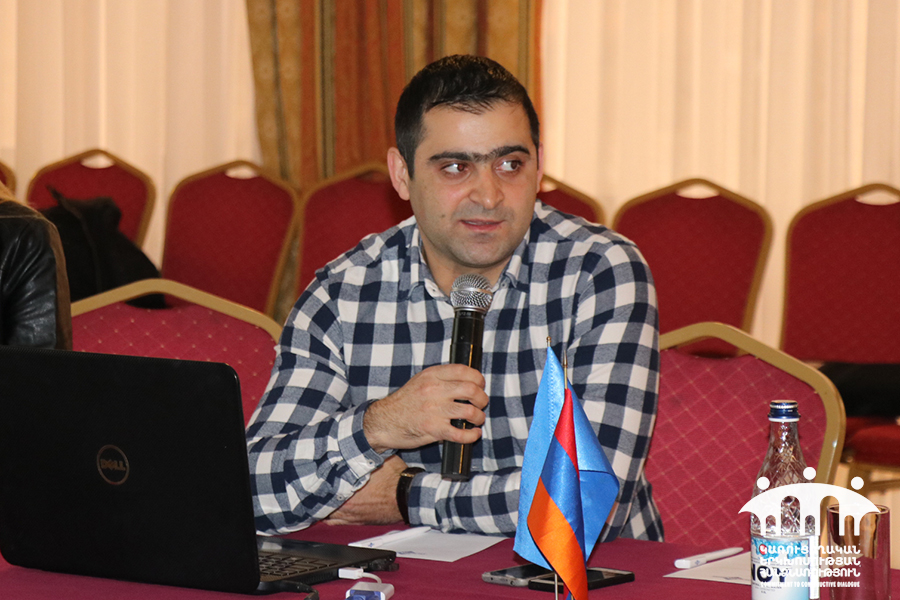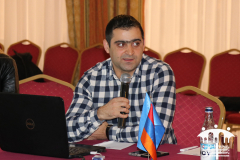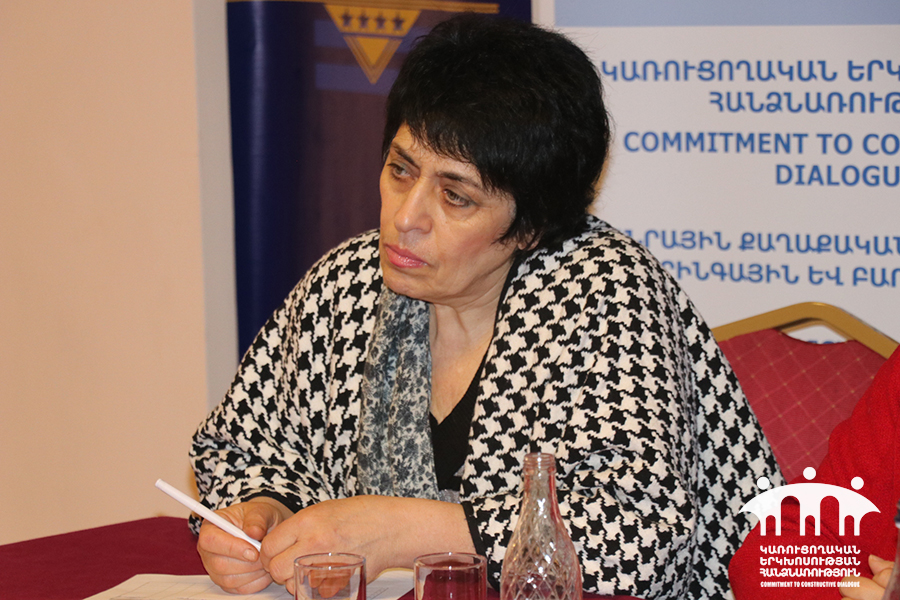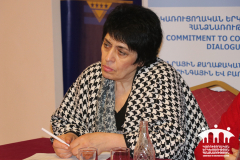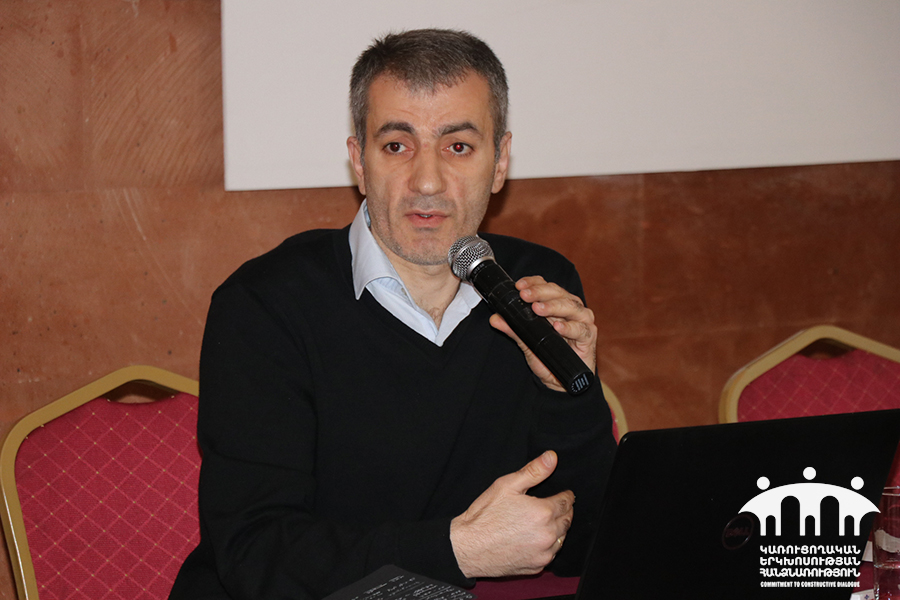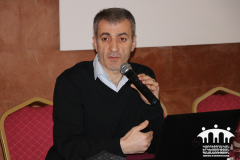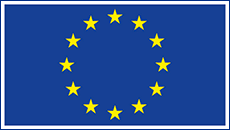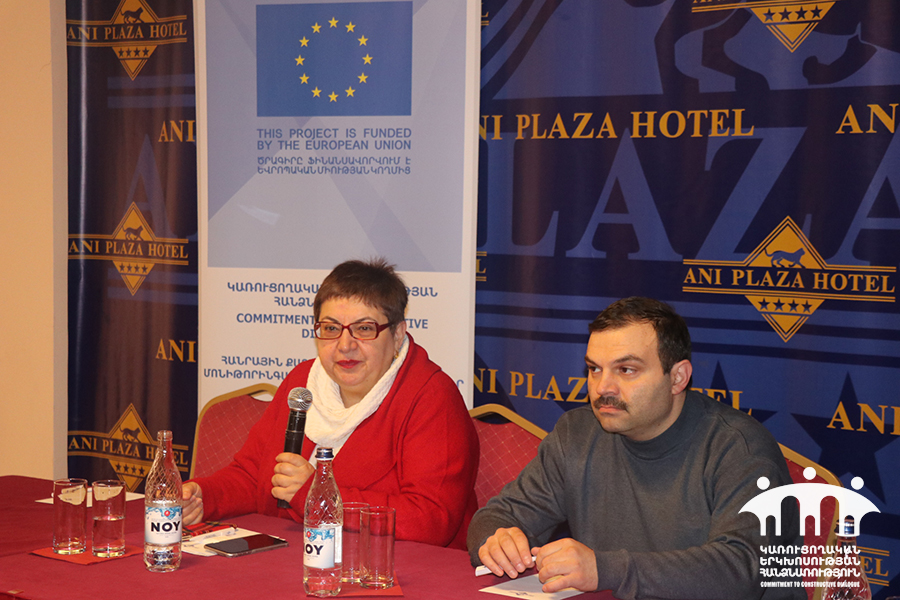
The second round-table discussion on the issues of tax policy development and improvement of administration was held within the framework of the “Public Policy Monitoring and Improvement” sub-grant project implemented in the scope of the EU-funded “Commitment to Constructive Dialogue” Project.
Ms Anahit Ghazanchyan, representative of the “Development Principles” NGO and “Public Policy Monitoring and Improvement” Project Manager, thanked the participants of the meeting for their attendance, noting that according to this fact, the participants in the discussion are convinced of the efficiency of their work.
“This is our second meeting, and we are still following the topic. Now there is a possibility to voice all the questions concerning the tax field, for example, how a public organization should operate, how to regulate its relations with the donor and state bodies,” she said.
Mr. Marat Atovmyan, Mentors Group Coordinator of the “Commitment to Constructive Dialogue” Project, Mentor of Justice and Related Sectors noted that the first debate was very active and really important questions were voiced there. “The objective of the project is to ensure constructive dialogue between the civil society and state bodies in order to solve all the issues we are dealing with and to overcome these problems through joint efforts, work and consent,” Marat Atovmyan said.
Project Expert Mr. Armen Petrosyan presented the results of the previous discussion on the possible tax risks arising from non-commercial activities, as well as the acceptable definition of the term “grant”, the recommendations on the statutory audit provisions and the peculiarities for calculation of the income tax.
He also presented the international experience related to grants, detailing in which country the public organizations are taxed.
The “Commitment to Constructive Dialogue” project is implemented with the financial support of the European Union by a Consortium of civil society organisations, which are the Armenian Lawyers’ Association (lead organisation), Agora Central Europe (NGO based in the Czech Republic), the Armenian Centre for Democratic Education-CIVITAS, the International Centre for Human Development, the SME Cooperation Association and the Union of Communities of Armenia.
The project aims to enhance the influence of civil society organisations (CSOs) and CSO coalitions/networks on public policies in Armenia. This will allow organisations that are already working in sectoral coalitions to access additional resources, new groups of civil society experts to come together and encourage place their causes on the local and national policy agenda, to identify common concerns and priorities and approach government bodies with constructive and strategic policy engagement initiatives.
The project has provided sub-grants to 9 CSO coalitions that will be directed to the development of public policies and will have tangible results in the 9 target sectors selected within the project, which are: Justice, Human Rights, Public Finance Management, Business, Education, Social Sector (social inclusion of children with disabilities), Agriculture, Economy and Energy.


